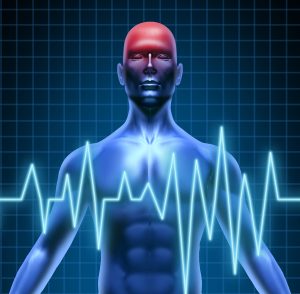What Are the Warning Signs of a Stroke?
A stroke happens when the blood supply to the brain is blocked or interrupted. When the brain doesn’t receive enough blood, it also doesn’t get the oxygen and nutrients it means. As a result, brain tissue can be damaged or even destroyed. While a stroke can be deadly, more people are surviving them today thanks to better medical treatments and greater awareness of stroke symptoms. When family caregivers know the symptoms of stroke, their older family members can receive treatment faster. The sooner treatment is received, the more likely it is that the outcome will be a good one.
Signs of a Stroke
 To help people remember and recognize the signs of stroke, the American Heart Association uses the acronym F.A.S.T. The letters mean:
To help people remember and recognize the signs of stroke, the American Heart Association uses the acronym F.A.S.T. The letters mean:
- Face Drooping: When you look at your older family member, does it appear that one side of their face is drooping? If you’re not certain, ask them to smile. If their smile looks lopsided, they could be having a stroke.
- Arm Weakness: During a stroke, one arm may feel weak or numb. Ask them to raise both arms. When one arm drifts downward, it is a sign of stroke.
- Speech: Stroke can cause slurred or garbled speech. Ask your older family to repeat a simple phrase back to you to check for speech problems.
- Time: If you see any of the above signs of stroke in your older family member, call 911 immediately. Even if the symptoms go away, they should go to the hospital since they may have had a mini stroke, which can be a sign that a bigger stroke is coming.
Preventing a Stroke
The most effective way of preventing a stroke in an older adult is by helping them to live a healthier lifestyle. This includes exercising and eating a healthy diet. Other steps you can help your aging relative to take are:
- Managing high blood pressure.
- Reaching and maintaining a healthy weight.
- Managing diabetes.
- Quitting smoking.
- Drinking alcohol only in moderation.
Elderly care can assist older to reduce their risk factors for stroke. For example, an elderly care provider can prepare healthy meals and encourage the senior to be more physically active. Elderly care providers can also help with managing high blood pressure by reminding your loved one to take their medications and cooking low salt meals. Should the older adult have a stroke, an elderly care provider can call 911 to ensure they receive the immediate help they need.
Sources
https://www.cdc.gov/stroke/signs_symptoms.htm
https://www.stroke.org/en/about-stroke/stroke-symptoms
https://www.mayoclinic.org/diseases-conditions/stroke/symptoms-causes/syc-20350113
If you or an aging loved one is considering hiring elderly care in Phoenix, AZ, please call the caring staff at Golden Heart Senior Care of Scottsdale at (480) 284-7360. We are here to help!